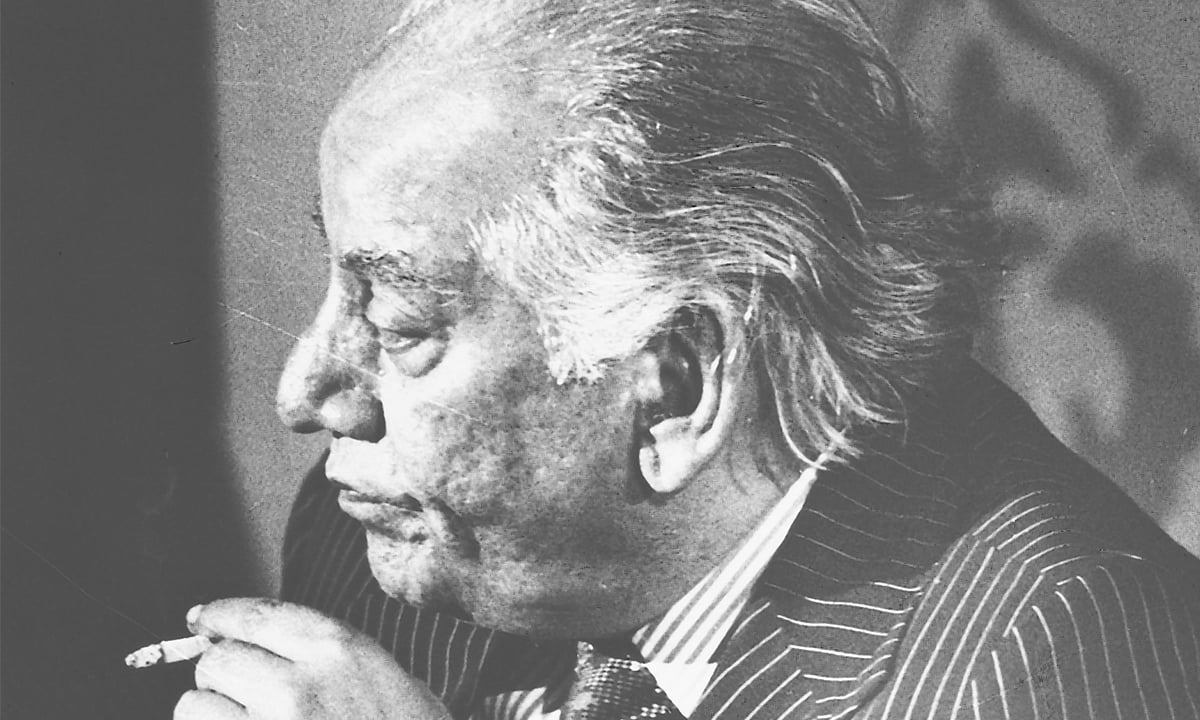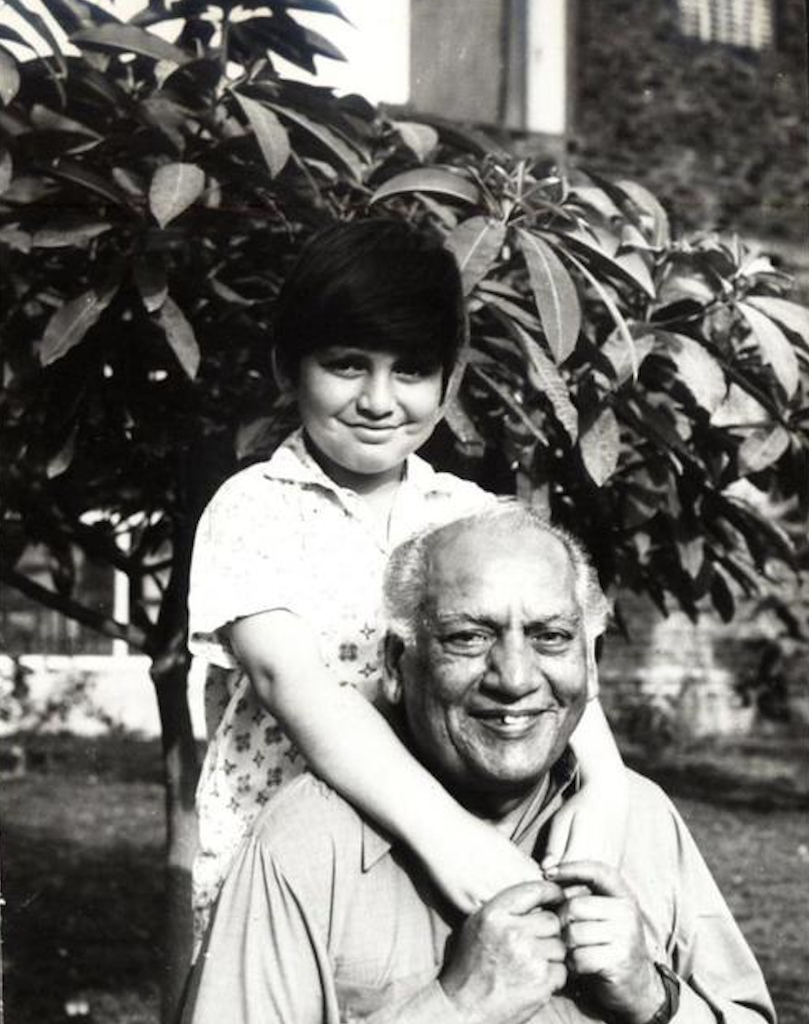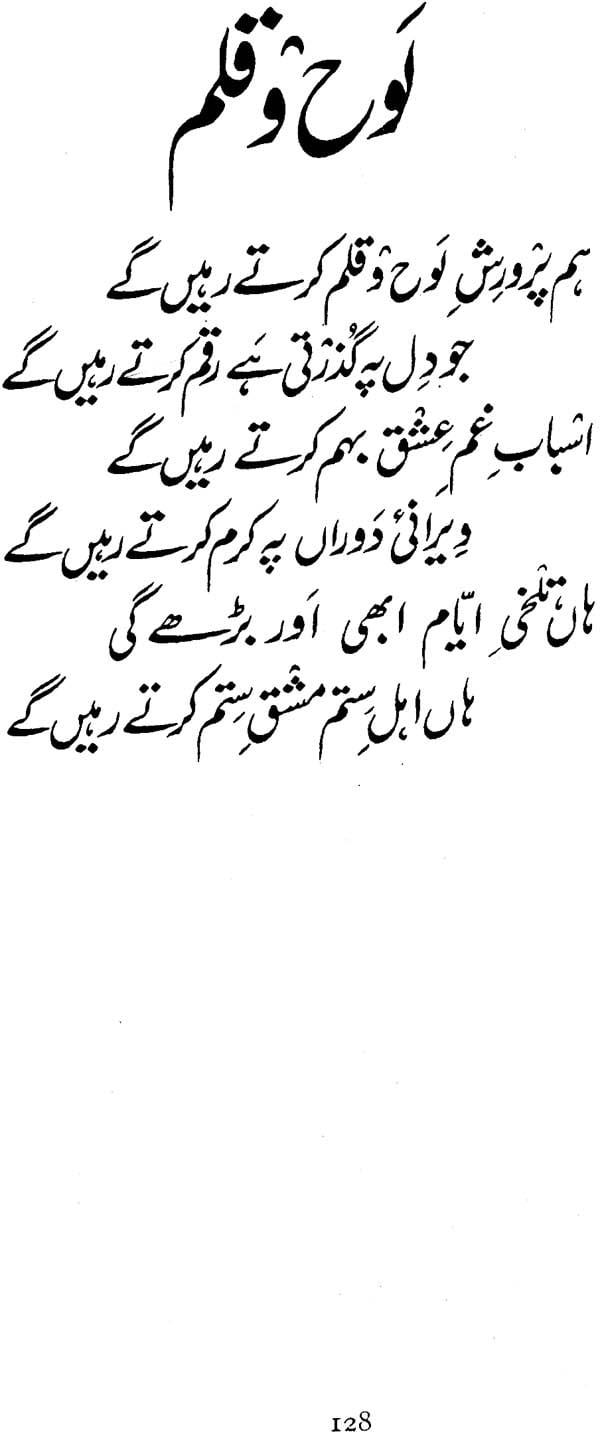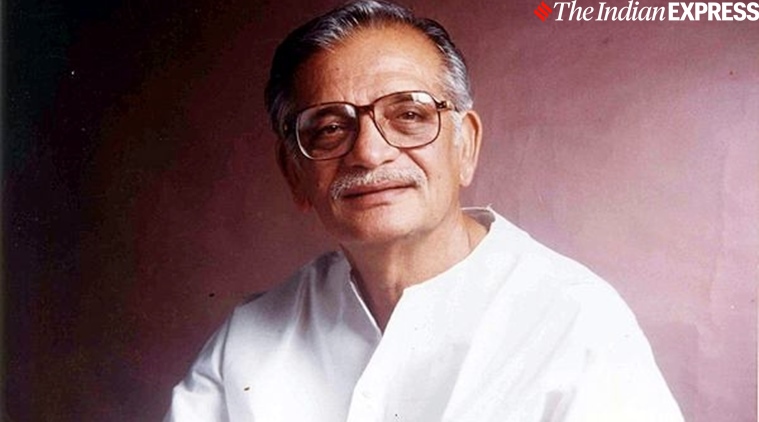ghazi52
PDF THINK TANK: ANALYST

- Joined
- Mar 21, 2007
- Messages
- 101,794
- Reaction score
- 106
- Country
- Location

‘They should have thought better of messing with a poet’
Faiz Ahmed Faiz is revered and reviled in equal parts in the Indo-Pak subcontinent.
Ali Madeeh Hashmi
Jan 22, 2020
“Who are these generous souls:The golden coins of their bloodGo clink! Clink!Into the earth’s perpetually thirstybegging bowl.Now runs this bowl abrim, abrim.
Who are these youths, O Motherland:These spendthrifts,Pristine treasure of their fleshLies scattered in dust;ShatteredIn every niche and corner“
— “For the Iranian students", Faiz Ahmed Faiz
In 2018, I wrote an article lamenting the way my mother, Moneeza Hashmi, the daughter of Faiz Ahmed Faiz, had been treated on a recent visit to Delhi. As usual, the article was my way of expressing the anger and pain I had felt, not just at the treatment meted out to her, but also at what India seemed to be becoming under Narendra Modi and his BJP government: a vengeful, hate-filled place so different from the India that I had encountered on my visits there in the preceding years.
My first visit to India was sometime in 1992 after my final MBBS exams, when my father persuaded me to go for a holiday. It was my first time travelling alone. I was 24 and slightly apprehensive but also excited. I stayed with some family friends in Delhi, a Sikh family who were very kind.

Faiz with his grandson
The two most significant memories that remain with me are the marks on their house’s walls, a remnant of the anti-Sikh riots of 1984 in Delhi following Indira Gandhi’s assassination, and the prodigious amounts of vodka that their son, who was about my age, and his friends could drink in one sitting. I stayed in Delhi for a few days, did the tourist round of Agra and Jaipur and had a great time.
After I returned to Lahore from the USA in 2010, I visited Delhi several times, took my children on one trip to see the Taj Mahal, learned how to navigate around the shops of Khan Market and even found a favourite restaurant there (Mamagoto). The book that I am most proud of, my biography of my grandfather, Faiz Ahmed Faiz, was published by Rupa Publishers in Delhi.
Sadly, my visits to India ended abruptly in 2014 after Modi assumed power.
Getting visas became increasingly difficult and the news coming out of India did not help. I have not been back since, not even for an official launch of my Faiz biography. My mother and khala continued their periodic visits but those too, ended after what happened with my mother.
But despite Modi’s attempts to turn India into a fortress where no outsiders are welcome, especially Muslims, the recent protests against the CAA-NRC are proof that India’s democratic spirit is alive and well, especially in its young people. At our annual Faiz Festival in Lahore last November, as always, we welcomed students, workers and activists from political parties and groups that are given no space in the mainstream.
A video of students chanting slogans from Bismil Azeemabadi’s iconic Sarfaroshi ki tamanna went viral on the internet and was seen around the world. Those students were raising awareness for a solidarity march to be held later that month but the poem, and the video, demonstrated the power of poetry to cut across class, ethnic, gender and national lines to unite all of us for a common cause.
When I heard that some at IIT Kanpur had found the chanting of Faiz’s Hum Dekhengay “objectionable” and that a panel had been set up to “investigate” if the poem is “anti-India” and “anti-Hindu”, I couldn’t help but smile. Since I am a psychiatrist, that is the lens through which I view the world. And the founder of modern psychology and psychiatry Sigmund Freud had once said, “Everywhere I go, I find that a poet has been there before me.”
While Freud is considered a visionary, a man ahead of his time, even he submitted to the authority of poets. In ancient Arabia, poets were revered as seers and fortune-tellers; Kahin in ancient Arabia referred to Pre-Islamic poets and its related term in Hebrew, Kohen, to priests. Which is to say that “poet”, “priest” and “soothsayer” were interchangeable terms.
It is not for nothing that Ghalib has written Aatay hain ghaib se yeh mazaameeN khayal main (“They descend from the heavens, these reflections/thoughts”). It has always been understood that poets are in touch with something not visible or understandable to ordinary men and women; something beyond the comprehension of the rest of us.
So Professor sahib at IIT Kanpur and all those supporting him really should have thought better of messing with a poet; let alone one so widely loved in the Indo-Pak subcontinent
Faiz Ahmed Faiz was revered and reviled in equal parts while he was still alive (he died in 1984). He received many accolades while alive, unlike many of his contemporaries and many who came before him and he was acutely aware of how much people loved him. He was also always guilty that he had not done enough to earn that love; that in exchange for the pedestal that people put him on, he should have done much more.
His humility was one of the reasons why people, even his enemies, respected him. And while he was a humble, retiring, quiet man, his belief in his ideals was staunch and unshakeable. He would rather submit to an argument than to pick a fight but that didn’t mean he agreed with you. Just that he valued you as a human being and as such, valued your opinion, even if it was diametrically opposed to his own. This appears to be a simple thing but often gets lost in the heat of an argument or a fight.
Faiz once revealed the reason that his poetry appealed to so many and it is a simple one. He said “what you say or write will only resonate with another person if it is in their heart too”. And he quoted a verse from his ideal, Ghalib: Main ne ye jaana ke goya yeh bhi mere dil main hai (“I realised that this, too, is in my heart”).
So when you write about love, freedom, justice, equality; how can it not move people? These are the ideals shared by all mankind, through all times, since the dawn of humankind.
I, for one, was not at all surprised to see students at Jamia, AMU and just recently at JNU reciting and chanting Faiz. I was surprised though, that India’s current government would pick a fight with, of all people, a poet.
Last edited:






